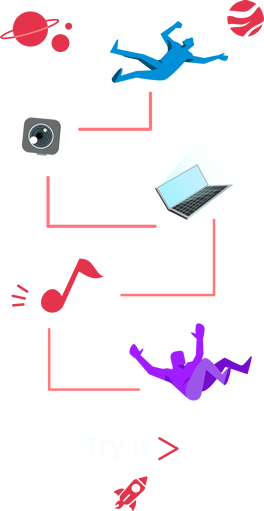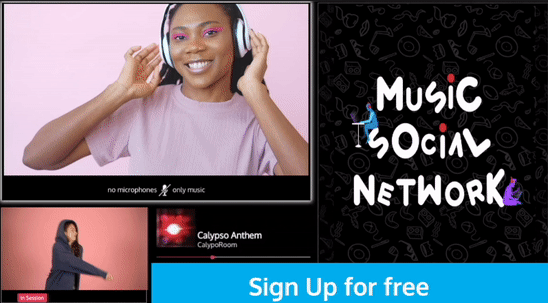How music helps to build communities? Find here the best explanation
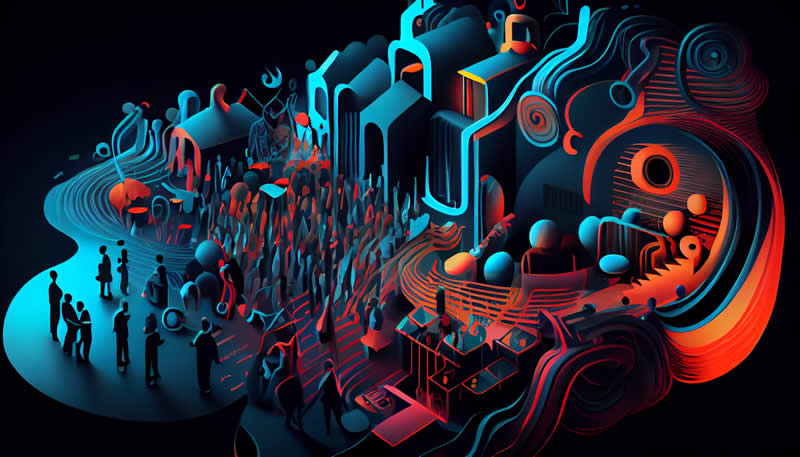
Table of content
How music helps to build communities? Find here the best explanation - Introduction
In today's interconnected world, communities are an integral part of our lives, with music often serving as the glue that binds us together.
As a universal language, music transcends barriers and has been instrumental in fostering harmonious communal relations since the dawn of human civilization.
With the advent of the internet, online communities have emerged as a powerful means for musicians to cultivate their fanbase and spread their music far and wide.
As we continue to navigate the digital age, the power of music and its ability to foster communities both in-person and online remains a vital force in our ever-evolving world.

KEY TAKEAWAYS
Music serves as a universal language that transcends barriers and fosters harmonious communal relations.
The internet has enabled the formation of powerful online communities, allowing musicians to cultivate their fanbase and spread their music globally.
Platforms like CalypsoRoom facilitate connections among music lovers, creating a sense of belonging and unity in a virtual space.
Technology has transformed how music-centered communities are created and maintained, with streaming platforms and social media playing key roles.
Participating in music-centered communities can provide social support and contribute to improved mental health and overall well-being.
What exactly is an online community?
The likelihood is that you're already a member of at least one online community, whether it's a neighbourhood - focused NextDoor or an interest-based Facebook or LinkedIn group.
A subreddit dedicated to a specific topic may be considered a community. However, the notion of an online community can be difficult to grasp at times.
Don't people meet in-person to create a community? How can a virtual army of strangers make a consumer feel cared for and appreciated?
Take a look at this definition of an online community before you start looking for examples:
An online community has its own set of rules and requirements, such as online community participation and moderation.

How music and community have grown over time?
One of the first kinds of communication that precedes language is music, and this is why it was not only inseparable from early societies but also essential to the development of harmonious communal relations.
Early communities with rich musical traditions prospered whereas others without such traditions perished, as has been demonstrated by anthropologists.
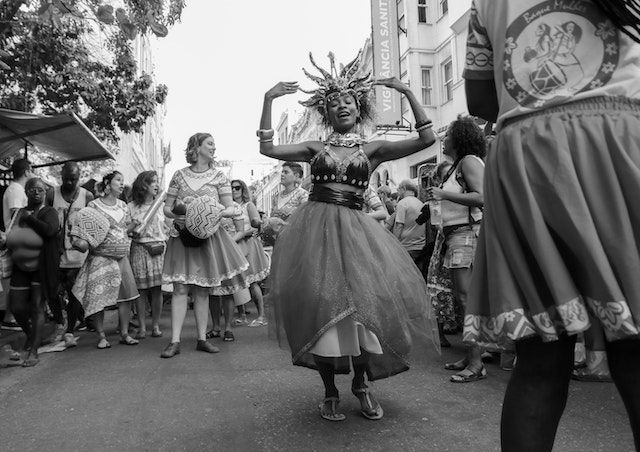
Music has the power to elicit intense feelings and heightened awareness.
When it comes to reproduction and survival, we tend to attach strong emotions to it, and this is why cultures with a musical culture have historically prospered since the music organises their emotions, allows crucial messages to be delivered, and inspires individuals to identify with and support other members of their group.
Musicians and the modern community
Every musician needs to create a music community.
There is no doubt that community development is the future of marketing, and this sort of community has to be built online, as well.
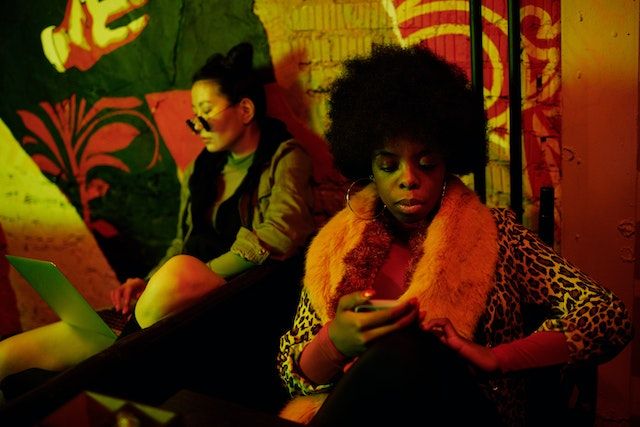
Having access to the internet provides you the ability to reach a wider audience. You don't need a record company to promote or distribute your music.
With the support of a community, your music may be spread via social media and word-of-mouth simultaneously.
If you're a new artist, you need to know that it takes a long time to create a community.
When you're developing a community, you're thinking long-term and here is where CalypsoRoom can help you with.
The role of technology in music-centered communities
Unquestionably, technology has transformed how music-centered groups are created and supported in the modern world.
Numerous specialized online communities that cater to a range of tastes, hobbies, and preferences have emerged as a result of this growth.
Streaming services like Spotify, Apple Music, and Tidal have revolutionized how we listen to and find new music.

Users may more easily find new songs and genres on these platforms since they offer tailored suggestions, curated playlists, and radio stations that cater to specific interests.
These platforms build a feeling of community among users by bringing together people who have similar interests so they can share and discuss their favorite songs and performers.
Facebook, Instagram, Twitter, and TikTok are just a few of the social media sites that have improved the relationship between musicians and their following.
Artists may build a more personal and sincere connection with their audience by giving updates, behind-the-scenes material, and interacting with fans directly.
To further establish communities focused on music, fans may share their stories, produce fan art, and engage in discussions with other like-minded people.
CalypsoRoom: uniting music lovers in real-time through shared listening experiences
In the realm of music-centered communities, CalypsoRoom stands out as a unique platform that enables users to listen to the same music together in real-time while connected via webcam.
This immersive experience brings people from all walks of life together, fostering a sense of unity and belonging within a virtual space.
By simulating the feeling of attending a live concert or social gathering, CalypsoRoom manages to bridge the gap between the digital and physical world, creating an atmosphere where individuals can bond over their shared love for music.
How music helps to build communities - Conclusion
In conclusion, music has an unparalleled ability to forge connections, build communities, and bridge cultural divides.
As we have explored throughout this article, the power of music extends from our earliest societies to the modern digital age, where online communities offer fresh opportunities for musicians and fans alike to come together.
For more information on the power of music and its role in community building, we invite you to explore our blog homepage.
Additionally, we encourage you to try our innovative platform, CalypsoRoom, where users can connect via webcam and share the experience of (listening to the same music simultaneously ).
By harnessing the power of music and technology, CalypsoRoom provides an invaluable tool to foster and strengthen communities in today's interconnected world.
Music will save us all,
CalypsoRoom team
Frequently Asked Questions (FAQs)
How does music help to create a sense of community?
Music serves as a common ground for individuals to connect and create solid social relationships since it is a universal language that cuts over linguistic and cultural boundaries. It stirs up feelings and produces shared experiences that strengthen a sense of community among people.
How have online communities changed the way we engage with music?
Musicians now have additional avenues to expand their fan bases, share their music, and communicate with followers all over the world thanks to online communities. These online forums provide a place for people to debate their favorite musicians, genres, and songs, fostering connections between those who have same interests.
How can musicians benefit from building a community around their music?
Musicians may increase their audience, gain useful criticism, and develop a devoted fan base by creating a community around their music. In order to boost the musician's visibility and success, this community can aid in the promotion and distribution of the musician's work.
What role does technology play in music-centered communities?
How communities based on music are created and sustained has been transformed by technology. Technology allows musicians to share their work and interact with fans globally through streaming platforms and social media, enabling the formation of online communities based around certain interests and genres.
How does CalypsoRoom contribute to music-centered communities?
CalypsoRoom is an innovative platform that enables users to connect via webcam and listen to the same music simultaneously. By offering a shared listening experience, CalypsoRoom helps to foster a sense of community and unity among music lovers, bridging the gap between in-person and online connections.
back
Written by CalypsoRoom Editorial Team
The CalypsoRoom Editorial Team is a skilled and diverse group of writers, researchers, and industry specialists who have access to Calypso's data and information in order to give you broad knowledge about the music industry as well as helpful advice to help you manage your music and dancing career.
Updated April 2023
Company number: 681223
James's Walk 31, Dublin, Ireland
contact@calypsoroom.com
+353 (89) 435 8928


